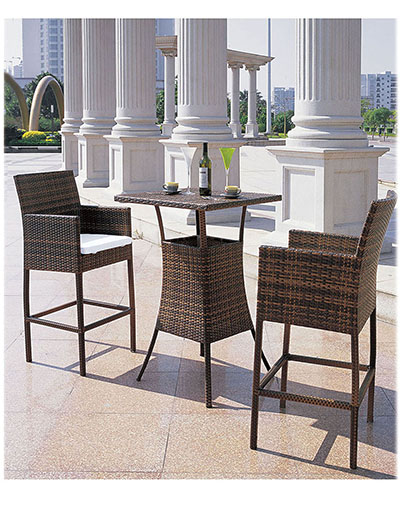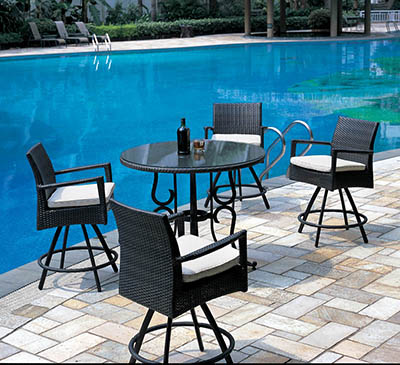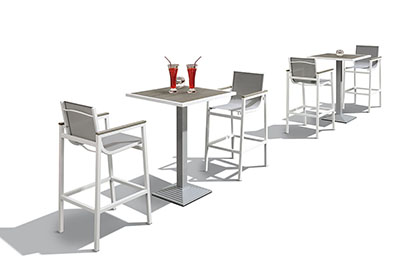POS machine new regulations drafts cited four major questions
A number of third-party payment companies believe that there are “more restrictionsâ€, and the opinions of branches, clearing management, and one cabinet and one machine are concentrated.
On June 27th, the central bank issued the “Administrative Measures on Bank Card Collection Business (Draft for Comment)†and publicly solicited opinions from the public.
The bank card acquiring business is the settlement of the merchant and the acquiring institution and the issuing bank after the cardholder consumes the card through the POS machine at the merchant. The settlement process is to obtain the transaction documents and transaction data from the merchant side, and deduct the fee calculated according to the rate and then send the money to the merchant.
From the perspective of public new "measures", the entry threshold for merchants to install POS machines will be improved: in the future, the acquiring institutions that have signed the same special merchants with bank cards will be one, and each cashier counter can only place one universal terminal that can be connected to the network. The above-mentioned regulations are also commonly referred to in the industry as "one household, one cabinet, one machine, one machine", and the strictness of the measures exceeds the industry expectations.
On June 28, the central bank announced the fourth batch of third-party payment licenses. Among the 95 newly-accredited companies, only four national bank card acquiring licenses were issued.
The consultation draft will be closed for comment this Friday. The reporter learned that at present, banking institutions have less opinions on this management method. They believe that after years of "barbaric" development of the acquiring business, with the regulation and restriction of laws and regulations, it will help guide the industry out of price wars and scale wars. Many newly-accepted third-party payment companies believe that “there are more restrictions and stricter regulationsâ€, and their opinions are mainly concentrated in four aspects: branch office, clearing management, one cabinet, one machine and innovation.
1 Is the number of branches limited?
The opinion draft stipulates that due to the need for the collection of special merchant funds, the acquiring institution, with the consent of the People's Bank of China, may provide the acquiring service for the total (ie headquarters to headquarters) signing model. However, the service and management of the branch of the special merchant should still be carried out by the corresponding branch of the acquiring institution or the entrusted local outsourcing service agency. The number of branches of the acquiring institution should be no less than 70% of the number of branches of the special merchant.
Industry opinion: In the current acquiring market, except for UnionPay, commercial banks, and Tonglian payments, which have branches in most provinces (cities, autonomous regions) in the country, most third-party payment companies that arise in the Internet industry will not be able to engage in cross- Provincial receipt business.
A third-party payment institution said that the starting point for the introduction of the bank card acquiring business management method should be to regulate and encourage the development of the industry. If it is for risk management, the third-party payment institution can fully meet the requirements of the regulations, but This provision will only make it more difficult for emerging third-party payment institutions to enter the acquiring market.
For a long time, third-party payment institutions born out of Internet companies generally adopt a regionalized management model and do not set up branches in various provinces. In the eyes of the industry, the introduction of this rule will make third-party payment institutions have to pay more for the regional layout. He suggested that it can be treated differently according to the scale of business development and the type of business. For example, the establishment of branches in East China and South China Branch does not necessarily require each province to set up a point, or there is a transitional arrangement in time.
Some bankers have also suggested that the POS machine's acquiring business requires daily maintenance and inspection, including observing whether the merchant has improper behavior. This needs to be carried out on the spot. The requirements for the branch may be that the central bank considers the risk from the perspective of preventing risks. The above-mentioned third-party payment institution said that if this rule is to be implemented, the company is likely to respond by setting up one or two business representatives everywhere.
There are also active attacks. Zhou Wei, the president of Remittance World, said that in order to achieve full compliance, remittances have opened branches in more than 10 provinces across the country. "In the future, we will set up branches in all provincial administrative regions of the country." Zhou Wei said that in the future, remittance will shift its business focus to prefecture-level cities, counties and townships, mainly serving small and medium-sized businesses.
2 Is the clearing channel monopolized by UnionPay?
The opinion draft stipulates that the acquiring institution provides the RMB bank card acquiring service for the special merchants, which involves trans-legal transaction transfer and fund clearing, and should be carried out through the legal bank card clearing organization approved by the People's Bank of China. The acquiring institution and the outsourcing service institution shall not engage in or disguise the cross-legal transaction transfer service of the bank card.
Industry opinion: All third-party payment companies' bank card acquiring business must be cross-legal. At present, the legal bank card clearing organization approved by the central bank is only a UnionPay company. This is actually cutting off the way for other organizations to do liquidation business. “In fact, if possible, we would like to set up a clearing platform ourselves. Can the central bank expand the scope of the liquidation organization and consider including more legal clearing organizations,†said a third-party payment company.
The profit of the bank card acquiring business mainly comes from the settlement fee. At present, quite a number of third-party acquirers have signed up with merchants in a way that cooperates with banks. In essence, they are outsourcing services in the receiving market. Therefore, they cannot fully obtain the profits of the acquiring market, but share them with commercial banks.
In the profit distribution chain, the profit of the issuing bank and UnionPay is relatively fixed, and the acquiring companies compete for the market, often lowering the proportion or even giving up the share, which is beneficial to merchants and banks.
3 “One cabinet, one machine†hinders the latecomers?
The opinion draft stipulates that the acquiring institution that contracts with the same special merchant is one. For larger star hotels and department stores, there are two acquiring institutions that can sign contracts with them, but each cashier counter can only place one Internet-wide acceptance terminal.
The acquiring institution shall collect the bank card settlement fee in accordance with the relevant regulations, and shall not adopt arbitrary price reduction. The unfair competition behaviors such as the difference of the bank card issued by different card issuers or the disguised pricing may not damage the legitimate rights and interests of other participants.
Industry opinion: Each cashier can only place one networked POS machine, which is regarded by the industry as the most important one in the consultation draft.
A third-party payment company that recently obtained a POS business license said that if a machine is limited to one machine, it means that in the big shopping malls and hypermarkets where POS machines have been deployed, new entrants do not have many opportunities and can only find other Market. Moreover, the person suggested that the merchants are not subject to the supervision of the central bank. For the merchants to talk with several institutions, sometimes the institutions are not fully graspable, and the resulting violations will eventually punish the acquiring institutions. This is not fair.
However, if the regulations for one cabinet and one machine and the price reduction are not allowed to be implemented, the current "scale war" and "rate war" conditions in the industry will be expected to be alleviated.
At present, the competition in the acquiring market is extremely fierce. In order to expand the other businesses of the merchants, some acquiring institutions even directly pay the handling fees for the merchants. The fierce competition in the acquiring market has led to the review and monitoring of merchants by the acquirer, and the unscrupulous behavior of merchants engaged in credit card cashing has begun to spread, and the risk of acquiring orders has suddenly increased.
However, the industry reports that this rule may still be "looking beautiful" and cannot completely stop the price war.
"The regulations are very beautiful and the reality is very cruel. Now there are more and more market competitors, and the price war is very fierce. The customers who are talking about it will suddenly be attracted by competitors at a lower rate. This is not the case. It is rare. The central bank’s approach has a certain effect, but it cannot completely stop this price war. It can be carried out through other preferential measures and in a disguised form of lowering the rate,†said a bank source.
4 Online and offline influences innovation?
The opinion draft stipulates that the receiving institution should use the encryption and data verification measures to send the bank card transaction information to ensure the accuracy, completeness, security, traceability and non-repudiation of the transaction data. The bank card specified in the present Measures may not be used. Transaction information has been transformed into Internet transaction information.
Industry opinion: With the development of the Internet and wireless technologies, the traditional network concept of payment settlement and settlement has evolved into the concept of offline, Internet and wireless networks, and the space available for display is beyond the imagination of ordinary people.
A third-party payment company said that “cannot convert offline bank card transactions into Internet transactionsâ€. This requirement actually prohibits the conversion of offline bank card transactions into Internet transactions. In fact, it is blocking the possibility of getting through the offline and online funding channels, and the offline and online are clearly defined. The possibility of third-party payment companies opening up wireless, Internet, and traditional offline payments through innovative products in the future will be completely eliminated. An important space for the mobile payment service is to open up online and offline transaction payments. In the future, the innovation of the mobile payment industry may be greatly reduced. It is suggested that the regulatory layer can innovate more policy space for payment companies.
â– Background
Third-party payment stirs POS acquiring market
The acquiring business, which was originally one of the commercial banking businesses, has now evolved into a competition between UnionPay, banks and third-party payment companies. Since the issuance of third-party payment licenses last year, many companies such as Alipay, Quick Money, and Remittance World have begun to lay out POS acquiring business, which has become a new focus for third-party payment companies.
Prior to the establishment of UnionPay, major domestic banks were independently developing their acquiring business, one network per line, one city with multiple networks, one cabinet with multiple machines, and one machine and one card phenomenon. The "Golden Card Project" launched in 1994 is to solve this problem. It is necessary for all commercial banks to carry out system transformation according to unified business norms and technical standards, to achieve one-to-one network, one cabinet, one machine, multiple lines of shared networking. .
The profit of the acquiring business mainly comes from the settlement fee. Depending on the industry, the rates range from 0.5% to 4%, and the handling fee is 7:2:1. The “7†is issued by the card dealer; the “2†is owned by the unilateral party; the “1†is the UnionPay owner. . If you take ICBC's card to the POS machine installed by ABC, if you charge 10 yuan (the fee is paid by the merchant), then ICBC takes 7 yuan, ABC takes 2 yuan, UnionPay earns the rest. 1 Yuan.
However, there are now more and more third-party payment companies involved in this market. In 2011, fast money and home delivery were launched nationwide, and more than 10,000 fast money POS terminals were planned. Alipay also announced that it will invest 300 million yuan into the cash on delivery market within three years and will provide 30,000 POS terminals for offline payments.
Bar table and stool is a versatile casual option that can add character, color and texture to your kitchen or bar design - or simply offer a comfortable place to sit.
In recent years, barstools have become a popular alternative to traditional dining room chairs. Barstools appear recognizable and desirable for their height advantage over typical dining chairs. Typically, barstools give off a more casual dining vibe, especially when coupled with a counter-height table. Many homes also have high breakfast counters that also need barstools. Since every home is different, you need a barstool that matches your style and color.
· Rattan/textilene seat in a woven design for ultimate durability and strength
· Aluminum frame for a solid and sturdy foundation
· Powder coated for sophisticated looks to last
· Foot stoppers to reduce scuff marks to your flooring
· Cushions also available with 100% waterproof fabric.
Bar table and stool has many material options, rattan, textilene, aluminum powder coated etc.




If you have any questions, please contact with us directly. Bar table and stools are produced by Golden Eagle Outdoor Furniture With High Quality and Good Appearance. Welcome you can visit our Factory.For any inquiry,Please send mail directly to us.
Bar Table And Stool,Rattan Bar Table And Stool,Outdoor Bar Table And Stool,Garden Bar Table And Stool
Golden Eagle Outdoor Furniture Co., LTD. , https://www.gepatio.com